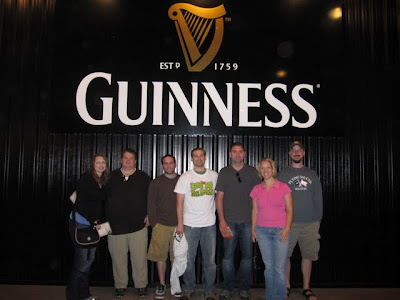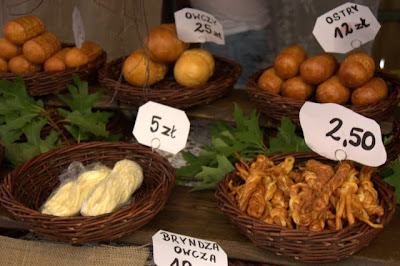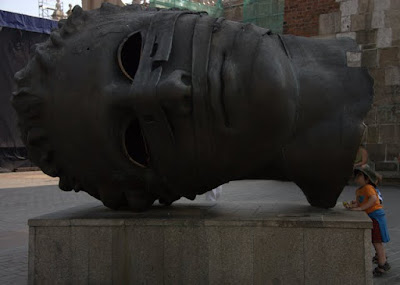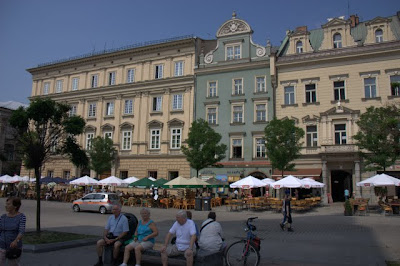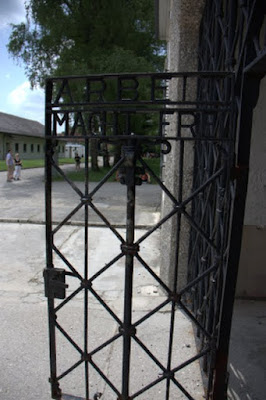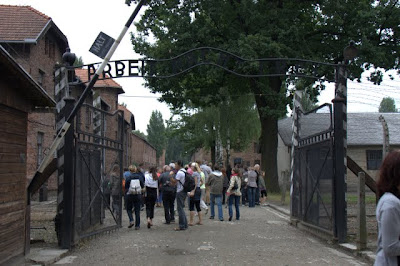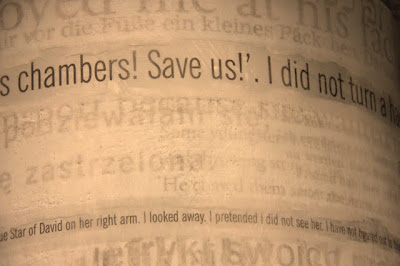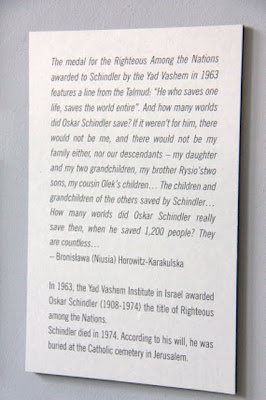It is a lovely day for a…Budweiser?
One does tire a bit of Guinness if you drink it almost every day for three weeks in a row, so I was excited to try an Irish microbrew at a gastropub we visited in Dublin. There is where I had my first Hooker. Galway Hooker is a pale ale that is in serious contention to be one of my favorite beers of all time. Unfortunately for me, it is only brewed in small quantities and served on draft in a couple of pubs in Ireland only.
While I didn’t think that the Irish drank Guinness ALL of the time, it never occurred to me that it wouldn’t be what the Irish drank MOST of the time. It didn’t take us too long to notice that Guinness was not the only drink that people were drinking. With due apologies to the Coors-loving Texan we met in Gort, Ireland, we were horrified that American beer-flavored water was often featured on tap. With some many delicious Irish beers, we weren’t sure why the Irish felt the need to stray. Everywhere you went, Budweiser had big ads about its ice cold beer chilled below zero. If the best thing you can say about your beer is that it needs to be below freezing to make it taste okay, pardon me if I don’t rush to the bar to try some. Strangely, we noticed the ads for Harp featuring the ice chilled temperature as its selling point. I tried a Harp and was disappointed. I’m not sure if it tastes better at home in relation to other options, or if the beer is formulated differently, or if it has been a long time since I had a Harp, but it was not great. Besides Guinness, Smithwick’s is featured on almost every tap. Our friend Matt is fond of Kilkenny, and we saw that from time to time. But what people were drinking most frequently was Carlsburg, a mild Danish lager, or, gasp, Budweiser.
We decided to get to the bottom of the Irish beer drinking habits by quizzing the bartender at the gastropub in Dublin. Dave, the bartender, told us that Guinness is no longer the most popular beer in Ireland, and that young people don’t drink Guinness. He said that the only people who drink Guinness in Ireland are the older people and the tourists. He said no one drinks Harp or Kilkenny, and that most people drink Carlsburg or some other lager. According to Dave, Guinness is developing a lighter lager to try to recapture some of the market. He said that Ireland used to have lots of microbrews, but the Queen got rid of most of them. Now, the microbrews are trying to make a comeback.
I know. It was a shock to me, too. I mean, we are talking about a country where every – and I mean EVERY – pub has a Guinness sign out front. A city that has a bridge devoted to Guinness. Now, we decided to take Dave’s insight as a grain of salt. This is coming from one person, who happens to be a bartender in a bar featuring microbrews. On top of that, we weren’t sure whether to trust Dave or not.
We were staying in the rowdy Temple Bar section. While it was filled with pubs, most of the people frequenting them were either tourists or college students. So we asked for recommendations for a place where he and other locals would go out. Dave directed us to several bars on a street far away from the touristy center. The first bar was packed to the gills with very, very drunk college students. It was loud and obnoxious and reminiscent of the bars in the Temple Bar, except substitute annoying American music like Kid Rock for traditional Irish bands catering to tourists. We stayed for one beer, but left after a guy started throwing up at the table beside us.
Thus began a debate amongst us: was Dave messing with us by sending us to that bar? You see, he had told us that when English tourists inquired where to go out for good night life, they always sent them to the gay bars as a joke. The bar seemed at odds with his laid-back nature and his Ipod-playlist playing over the loudspeakers at the gastropub. Was this a joke on us? Is this where he sends Americans for a laugh?
We’ll never know, but the countervailing argument was that the single members of our group had inquired about the best place to meet Irish ladies and one could have their pick of drunken women at that bar. And the second bar he recommended was much more a speed: laid-back, good tunes, and not crowded. The two bars did have something in common though: practically the only ones drinking Guinness in either one was us.
After leaving Dublin, I kept my eye out. And I’d have to say Dave knew what he was talking about. While the old-timers still savored a pint of the black stuff, most people, particularly younger people, seemed to drink lagers and ciders. When quizzed about Irish drinking habits, other people concurred that Guinness is not as popular anymore and not the “cool” thing to drink. Some said it is too heavy; some said they only drink it in winter (as if there is a difference between the summer weather we experienced). According to The Internet, Guinness still is the number one selling beer in Ireland, but its market share has been decreasing over the years.
Even if everyone in Ireland does not love Guinness, I still do.
Everything you wanted to know about Irish beer, and then some:
http://en.wikipedia.org/wiki/Guinness
http://www.europeanbeerguide.net/irlbrew.htm
http://www.bootsnall.com/articles/08-08/best-selling-beers-around-the-world.html
My Goodness, My Guinness
My daydreams about Ireland often featured Irish people spending much of their time sitting around Irish pubs with names like Murphy’s and O’Connors, drinking pints of Guinness. At home, Guinness is a delicacy, not found in every bar, and often running at around $5.00 a pint. I still remember drinking my first Guinness ever. I was 21, in a pub in Washington, D.C., surrounded by new acquaintances I didn’t know that well. It tasted like a strange mix of coffee, chocolate and beer. It was unlike anything I had ever drank before. No matter where you are in the United States, drinking a Guinness can make you feel like you are sitting in a pub in Ireland, surrounded by green countryside, even though you are probably sitting in some sort of American imitation in some concrete jungle somewhere.
I have to agree with Sloan from Reason to Wander: your first Guinness in Ireland is your best. All the anticipation of a place rolled up into one drink.
Our first Guinness was in Donegal with our friend McIntyre. We unanimously agreed: it tasted better than at home. It was the perfect pour, the perfect temperature, the perfect flavor. It tasted downright creamy. With each new arrival of our friends from home, we watched them enjoy their first Guinness in Ireland. Fantastic stuff.
Like good tourists, we toured the Guinness factory in Dublin. We heard the tour was touristy, but there was no question that we would go. We had all bought into the Guinness marketing a long ago and are of the similar opinion that it is always a lovely day for a Guinness.
Their terminology is misleading; if you think of it as more of a Guinness museum, as opposed to a tour of a factory, you won’t be disappointed.

Plus the Sky Bar on the 7th floor has great views of Dublin as you drink your free (or 15 euro, depending on how you view it) Guinness.
Our Irish Home Away From Home
In many ways, coming to Ireland was like going home. Certain aspects of Ireland were, to me, more akin to the United States rather than the rest of Europe. There’s big things, like the fact that we understood everybody and everything for the first time in months. Well, if you don’t count the accents, that is. Newspapers, television, signs, packages – all in English. We could have real conversations with people, instead of just trading limited words. Then there’s the little things. Instead of just stone, brick buildings lined the streets. Waiters will actually bring you tap water to the table without being asked. The food was more familiar, too. We ordered things like chicken salads and turkey sandwiches.
The best part about Ireland, and the thing that made it so familiar, was the steady stream of friends that came to visit us. First McIntyre, then Matt, Danielle, and Jason, and then Tony. It was fantastic to get to visit with everyone, even if everyone’s comings and goings meant that we all ended up traversing Ireland in a less than ideal fashion. Everyone came and went as they could in order to fit their vacation to Ireland into their schedules. We already had forgotten how short a one week vacation is. We were appreciative that everyone chose to spend their vacation with us.
First, Mac met us in Dublin, and Mac, Sean and I headed to Donegal to visit places significant to Mac’s family roots. Next, we headed to Galway to see Josh Ritter at the Galway Arts Festival. Then, it was back to Dublin to meet Matt, Danielle, and Jason on Sunday, and Tony on Monday. The seven of us got to spend two days together in Dublin, before Mac flew home for a family reunion and the rest of us drove to Doolin. The next day, it was off to Dingle, and then to Kilkenny, before everyone had to fly home. When Sean and I woke up on Saturday, realization set in. This is our life now. It was just the two of us. We had no plans, just the rental car for another 10 days. Well, Sean said, want to go visit Kilkenny castle or something?
Sightseeing is fun and all, and this year of travel is an amazing opportunity, but nothing beats drinking in a pub with friends you’ve known for years.
Naturally, I have lots of stories to tell from the time the gang was in Ireland, as well as the time Sean and I spent, mostly in Northern Ireland, after everyone left. Stay tuned…
Rynek Glowny
Krakow’s main square, Rynek Glowny, is one of the largest of the European cities. It is filled with people, vendors, Polish food, pigeons, beautiful buildings, and churches. We spent lots of time just walking through the square.
Unfortunately, it is also filled with people trying to sell you tours around the city and the sites close by. Some days we could not walk two steps without someone new asking us to take a tour. Mostly because of this, Krakow felt more touristy than the other cities we visited in Europe. Despite this slight annoyance, we think Krakow is a great city to spend some time in.
Visiting Auschwitz and Dachau
When we were in Munich visiting Abbie, we visited Dachau Concentration Camp Memorial, which was the site of the first concentration camp in Germany.
We also went to Auschwitz while we were in Krakow. Auschwitz was designated by the Nazis as the place where the “final solution of the Jewish question in Europe” would take place. As if there were any questions to answer other than how people could act so cruel, depraved, and sadistic towards their fellow human beings.
I don’t have much to say about our experiences at Dachau and Auschwitz, other than I think it is important for everyone to visit a Holocaust memorial somewhere at some point in their life. To pay respect to those who suffered and died. To learn more, to ensure that history never repeats itself in this way. The experience at the memorials is sobering. Particularly at Auschwitz, where each pair of shoes, laying in piles and piles, in all shapes and sizes – including children’s shoes – really makes it hit home, the shear enormity of the number of individuals who died there at the hands of others.
We also visited the recently opened Schindler Museum at the site of Oskar Schindler’s former factory in the Podgroze neighborhood of Krakow. It is designed to demonstrate what life was like for Poles and Jews during the time of Nazi occupation of Krakow. Having visited Auschwitz the day before, the musuem’s exhibits were all the more poignant.
Hall of Choices, showing people’s ethical dilemmas:
Quote about the lives Oskar Schindler saved:

